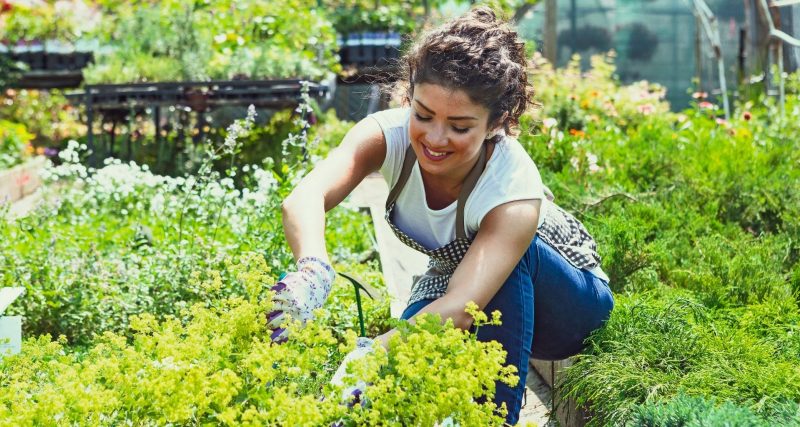The whole world is cooped up in what feels like a pigeonhole for the whole of 2020 and most of 2021, dealing with the pandemic’s mental, physical, and biological stress. When work from home became the regime, and people stopped going out of their houses, the entire space of each home transformed drastically.
There was an upsurge of this newfound sustainable lockdown hobby – which everyone is talking about – growing indoor plants.

Why People Are More Interested in Growing Indoor Plants
Recently, multiple studies were conducted in which people have admitted that indoor plants give them a sense of purpose. For example, they invested their time, effort, and money in enquiring about hundreds of species, sizes, shapes, and uses, of a plant’s aura, its benefits, and the amount of care it requires.
ADVERTISEMENT
Lockdown was a difficult time. In summary, in several surveys and reviews, people expressed how plants made a positive impact on their mood. The growing interest in maintaining houseplants is because of the following facts and reasons:
- Plants like rose, daisy, or lily are low maintenance and can help soothe your nerves. These are known to be stress busters.
- Indoor plants like feverfew, Philodendron, and croton can facilitate pain relief and keep the headaches at bay.
- The Eucalyptus and the Areca Palm absorb pollutants and balance humidity content, thus providing oxygen and minimizing upper respiratory tract diseases.
- The pandemic has pushed people to stay indoors, and the air indoors is usually tainted with airborne mold and pollutants. For example, Indoor Plants like Devil’s Ivy, Boston’s fern, and Peace Lily are known to promote a pollutant-free space with improved oxygen levels and air quality.
- Gardenia and snake plants improve room temperature and thus, can enhance sleep quality. Plants in your living space are therapeutic and give you a surge of positive energy. They help in lowering blood pressure, boosting your mood, and alleviating anxiety and loneliness.
How to Grow Low Maintenance Indoor Plants?
Urban structures are deprived of large outdoor spaces, so here are a few tips for growing some indoor plants:
- Give each plant its functional place, with appropriate light, shade, moisture, and care, according to its needs.
- Choosing the right low-maintenance plant according to your needs – whether it is to beautify your home, eradicate indoor pollution, remove toxins, provide kitchen herbs, or provide fresh air and oxygen.
- Choose soil carefully and check the roots of plants. You can put some pebbles at the bottom of your plant before adding soil.
- All plants do not need watering. Go through the recommendations and growing guide carefully.
- Find an ideal way to continue your indoor garden at home, even after the lockdown, and spend more time with the plants.
Conclusion
Millennials have a reputation for adding a new dimension to their spaces and gratuitous indoor foliage. So, grow your indoor garden and enjoy the benefits of nature! Everyone is more conscious of self-care and mental well-being, and indoor plants improve mood and reduce stress levels.
ADVERTISEMENT
Procommun Suggestions
procommun.com
ADVERTISEMENT








